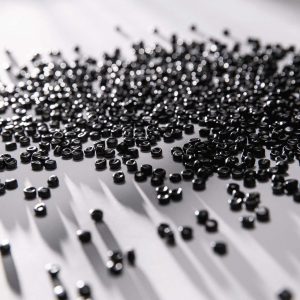Acrylonitrile Butadiene Styrene (ABS) is a widely used thermoplastic polymer known for its toughness, impact resistance, and versatility. It is a copolymer composed of three main monomers: acrylonitrile, butadiene, and styrene. ABS combines the strength and rigidity of acrylonitrile and styrene with the flexibility and impact resistance of butadiene, resulting in a material with balanced mechanical properties.
ABS is commonly used in various industries and applications, including automotive parts, household appliances, toys, electronics, and consumer goods. It can be easily processed using methods such as injection molding, extrusion, and thermoforming, allowing for the production of complex shapes and designs. ABS is also known for its ease of post-processing, such as machining, drilling, and painting.
In addition to its mechanical properties, ABS offers good chemical resistance, dimensional stability, and surface finish. It is available in a wide range of colors and can be easily colored or tinted to meet specific requirements. Despite its versatility and performance, ABS is not biodegradable and can contribute to environmental pollution if not properly disposed of or recycled.
The main key values of Acrylonitrile Butadiene Styrene (ABS) are:
Toughness: ABS exhibits excellent toughness and impact resistance, making it suitable for applications where durability and resistance to mechanical stress are important.
Versatility: It is a versatile material that can be easily molded and processed using methods such as injection molding, extrusion, and thermoforming, allowing for the production of a wide range of products and components.
Rigidity: ABS retains the rigidity characteristic of styrene polymers, providing structural integrity and stability to finished products.
Chemical Resistance: It exhibits good resistance to many chemicals, making it suitable for applications where exposure to chemical substances is a concern.
Dimensional Stability: ABS maintains its shape and dimensions over a wide range of temperatures, providing stability and consistency in various operating conditions.
Surface Finish: ABS has a smooth surface finish, which can be easily painted, coated, or decorated to achieve desired aesthetics.
Ease of Processing: ABS is easy to process and can be machined, drilled, and painted with ease, allowing for customization and post-processing operations.
Electrical Insulation: It possesses good electrical insulation properties, making it suitable for use in electrical and electronic applications.
Recyclability: While ABS is recyclable, its recycling rate is relatively low compared to other plastics. Efforts to improve recycling infrastructure and promote recycling initiatives can help reduce its environmental impact.
Properties:
Density: Typically ranges from 1.03 to 1.07 g/cm³, depending on the specific grade and manufacturing process.
Melting temperature: Generally between 210°C and 250°C, depending on the composition and additives used.
Softening temperature: Approximately 90°C to 110°C, where it becomes pliable and can be molded or formed.
Decomposition temperature: Typically between 350°C and 420°C, indicating its high thermal stability.
Elastic modulus: Generally between 1.5 GPa and 3.5 GPa, representing its stiffness and resistance to deformation.
Tensile strength: Typically between 40 MPa and 60 MPa, indicating its ability to withstand pulling forces.
Thermal conductivity: Low thermal conductivity ranging from 0.1 to 0.2 W/(m·K), making it suitable for thermal insulation applications.





